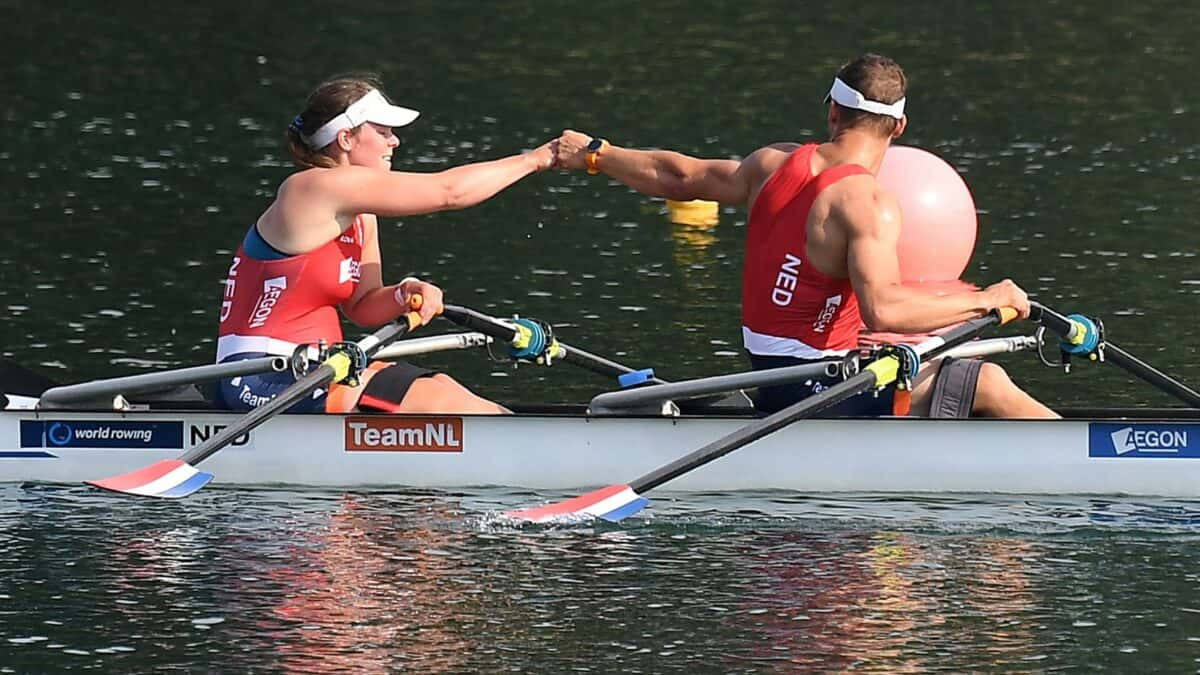
22 Jun 2018
Rowing doubles, rowing singles, meet para-rowers van der Meer and Koning
World Rowing caught up with Van der Meer and Koning to discuss their world of rowing.
The duo came to the sport of rowing in two very different ways. Van der Meer started out as an able-bodied ski racer. An accident damaged her leg and led to her disability. But van der Meer was determined. She eventually returned to the mountain as a para ski racer until a second accident damaged her good leg.
“My doctor told me that he wouldn’t fix me anymore if I skied again and I thought this is a very good doctor, I shouldn’t lose him. So, I stopped ski racing,” van der Meer says. This eventually led her to find rowing, which she began in 2015. Just over a year later, she was paired with Koning.
Koning, who was born with one leg shorter than the other, had played wheelchair handball for years. But his athletic goals were aimed at the Paralympics and the hope of wheelchair handball becoming a Paralympic sport was slim. As a team-building activity, his team tried rowing. Koning fell in love.
“I had to do some little tests on the erg and some rowing on the water and I was like, wow, I really like this. My former coach at that moment was pretty impressed by the scores I could pull on the erg,” Koning says. That put Koning on the path to a rowing career that would eventually lead to the 2016 Paralympic Games in Rio, with then partner Esther van der Loos.
Following van der Loos’ retirement, Koning and van der Meer were matched up and the two went on to become World Champions. They had to adapt to differences in height, arm span and strength, but according to Koning, there is no standard formula, it is just about learning to row together to make the boat go as fast as possible.
Van der Meer and Koning are also racing this year in the new para-rowing categories, the PR2 single sculls. They have been an important voice in pushing for the creation of these categories.
“By allowing the single you can develop more athletes and then more athletes can eventually go into the double. For us, the single is an extra challenge. It is good to take on new challenges because you have to keep working. It’s one thing to go to the top, but it’s a whole other thing to stay on top,” says van der Meer.
In the end, though, both of them love racing as a team. “The racing in the double provides good mental support to know that there is somebody else in the boat kind of dying with you. That really helps you at the point you have in every race when you think, ‘what am I doing here?’ Then it’s just good to know that there is somebody behind you with the same thought,” says Koning.
The double won gold at the International Para-rowing Regatta in Gavirate, Italy followed by gold at the first World Rowing Cup of the season. They are entered at the second World Rowing Cup in both the double sculls and the single sculls.

